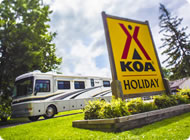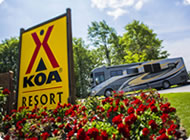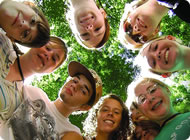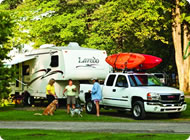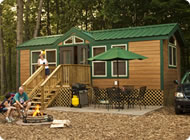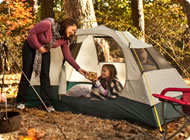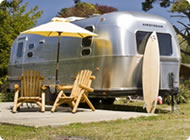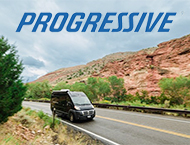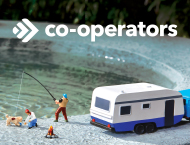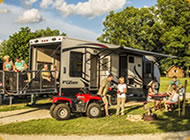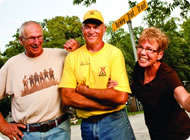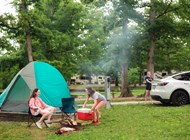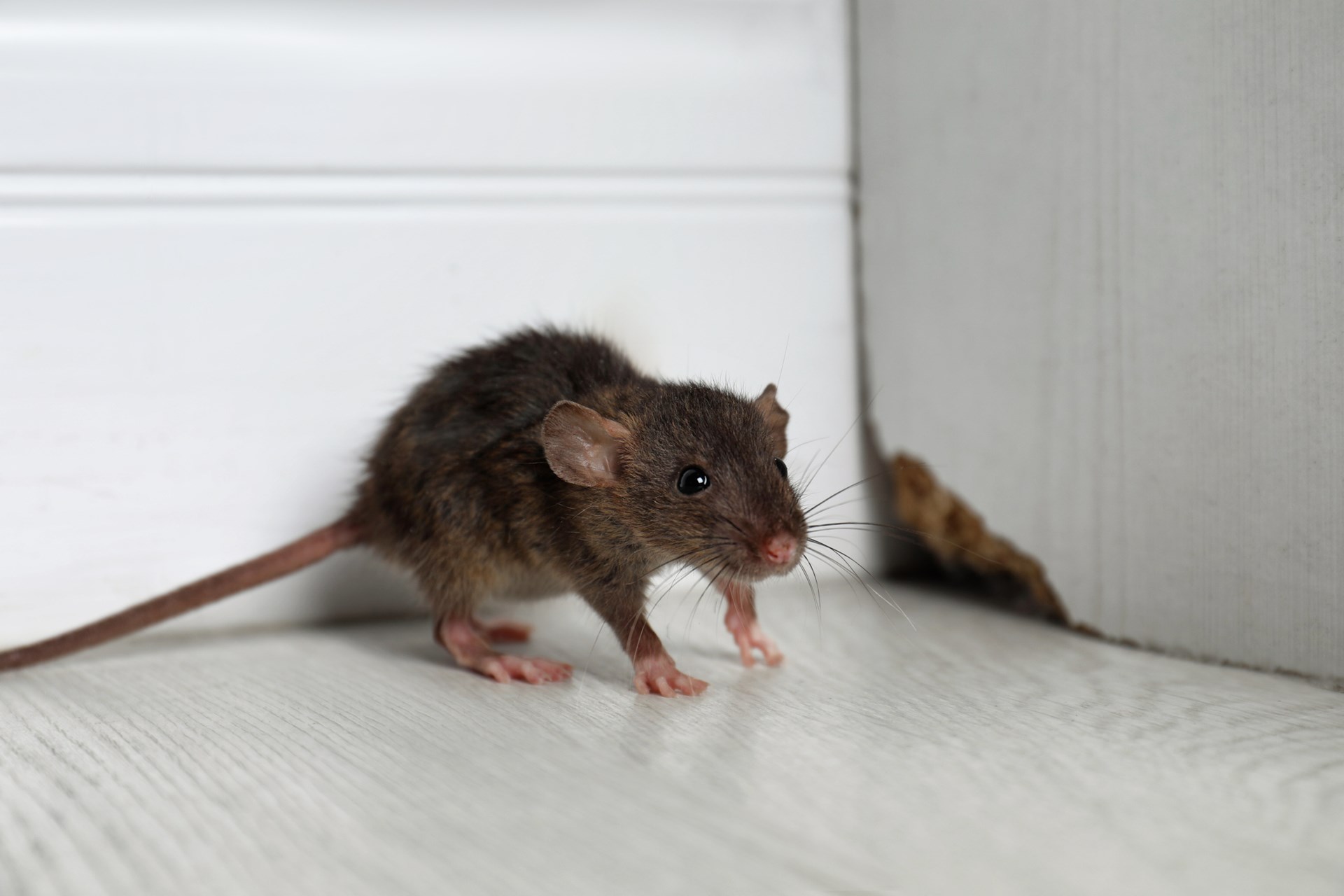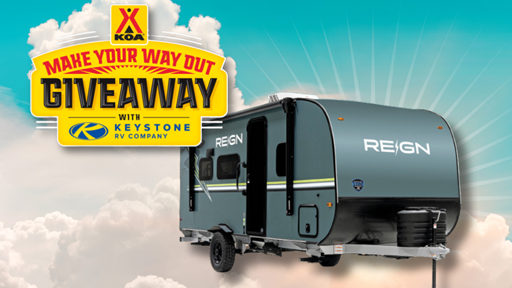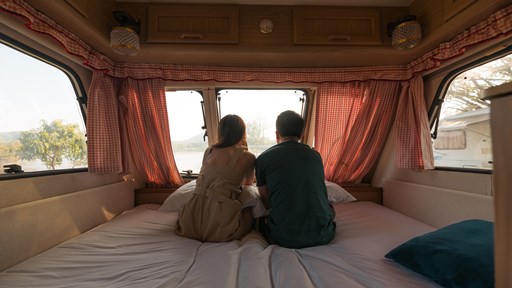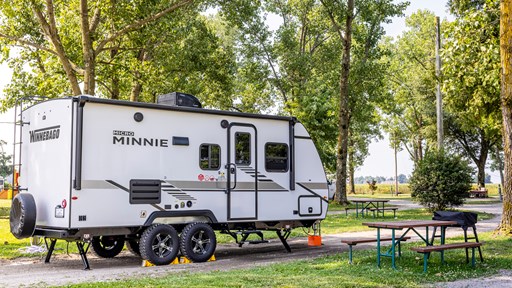Wondering how to keep mice out of your RV all year long? Discover why it is important and how to prevent mice infestations in your camper.
Why Is It Important to Keep Mice out of RVs?
If there is one thing you absolutely want to keep out of your RV, it is a mouse. These rodents can be extremely damaging to your RV’s condition, as they can chew on wires and lines and make nests within your furniture and belongings. This will cause cosmetic damage and severe issues with the electrical or hydraulic systems, which can ultimately affect your steering, braking, electricity and much more.
Mice, rats and other rodents also pose potential health hazards. Many carry a variety of diseases, including salmonellosis and ringworm. Plus, they might even have parasites that can carry dangerous illnesses you want to avoid.
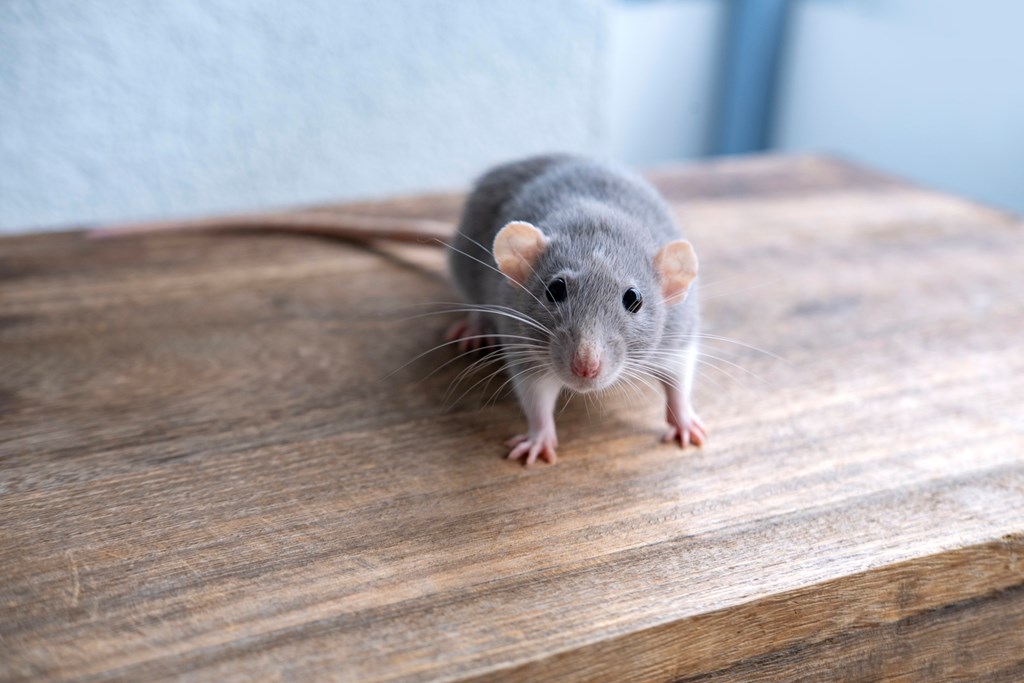
Common Entry Points for Mice
RVs are homing beacons for mice, offering food, shelter and warmth. Mice will try to find any crack or crevice to make their way inside. Openings can be as small as a dime, and these rodents will squeeze their way through before nesting in the depths of your RV.
Some of the most common areas mice typically enter RVs include:
- The roof
- Underside openings
- Exhaust vents
- Cracks around doors
- Gaps around wiring or plumbing
- The RV’s belly pan
Signs of Mice in RVs
Rodents can build nests in your walls and ceilings, beneath your cabinets, around your electrical wiring and plumbing, near doors and windows and even under your hood. One of the biggest signs you have an unwanted guest is damage to your food items. You may notice bite marks, holes in plastic packaging or even food crumbs throughout cabinets. Other indications include:
- Droppings
- Scattered wrappers
- Chew marks on your belongings
- Disorganized personal items
- Tracks
- Strange smells
Impact of Mice Infestation on RVs
Mice can damage various structural areas of your RV, including walls, ceilings, insulation and electrical wiring. An infestation also has health risks from mice droppings and urine. Plus, once a few rodents have made their way into your RV, there is an increased likelihood that more will follow. These factors can affect the comfort, aesthetics and safety of being in your RV and also require significant investment to eliminate all rodents from your space.
Here are some other effects of rodent infestations in your RV:
- Requiring extensive cleaning and repairs: Sanitizing your space and repairing RV rodent damage following an infestation is a lengthy process.
- Lower resale value: RVs that experience serious mice infestations might lose value in buyers’ eyes, which can lower resale prices if you ever decide to sell your RV.
- Schedule: An infestation can disrupt your travel plans and potentially prevent you from enjoying a relaxing getaway.
- Enjoyment: Mice, squirrels or other rodents hiding in your ceiling and walls create a frustrating and uncomfortable living space, especially when you are dealing with constant scratching, scurrying and other side effects of infestation.
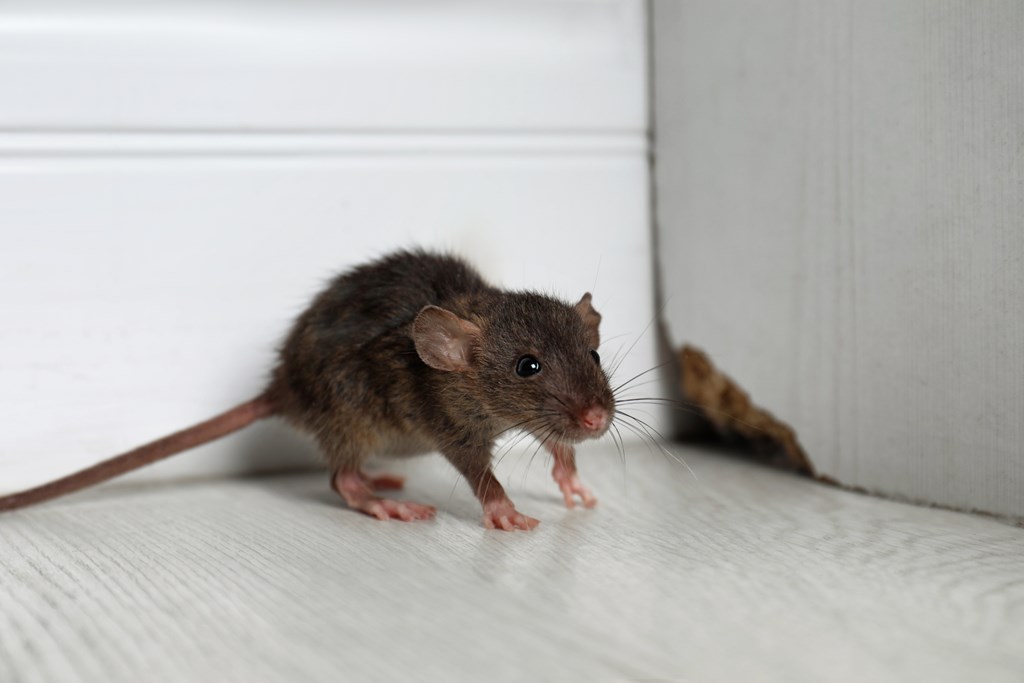
Best Ways to Keep Mice out of RVs
How can you keep mice out of your camper during storage and vacations? Mousetraps are some of the most popular methods used to avoid a widespread infestation. These additions come in a variety of configurations and styles, with some being more humane than others. However, traps are highly effective at capturing mice and really perform best after mice have already infiltrated your space.
To avoid potential infestations, consider the following prevention methods.
Seal Entry Points
Securely sealing any potential entry point is one of the most important things you can do to prevent infestations and the destruction that follows. You should take your time looking for any openings in your RV and block them using spray foam, mesh screens or weatherstripping. Dryer sheets, Irish Spring bar soap or hot sauce can also be effective deterrents you can use to keep mice at bay. These do not always work, though, or they may only provide a temporary solution.
Many RV owners even use steel wool to seal up any openings they find. Given the roughness and durability of steel wool, mice cannot chew through it and will search for an alternate entry point, which will hopefully be fully sealed as well.
Proper Food Storage
Loose and unorganized food is likely one of the biggest reasons mice are attracted to your RV. You can easily remedy this issue by safely storing your food within airtight and rodent-proof containers. It is best if your food containers are either glass or plastic, and they should be stored in high cabinets or storage spaces.
Additionally, if your RV is not in use, be sure to remove all food from cabinets, drawers and the fridge. Doing so will help prevent rodents from being attracted to your RV and keep any animal from accessing your food.
Use of Repellents
Mouse repellents are popular methods of keeping mice away. Unfortunately, there isn’t one rodent repellent that’s best for RVs, and the ideal solution depends on the situation. However, two popular repellents are ammonia and mothballs. Ammonia replicates the smell of predator’s urine, and mothballs contain naphthalene — both proving to have useful qualities in minimizing the chances of rodent damage to your RV.
If you want to take an alternative route, you can also utilize electronic or ultrasonic repellents. These devices are often plugged into outlets and produce high-frequency sound waves or electromagnetic waves designed to repel mice and other rodents. What is beneficial about these tools is that humans cannot hear or detect the waves, making them extremely convenient to have around your RV.
Regular Cleaning
Implementing a regular cleaning schedule is one of the best RV mouse deterrents you have complete control over. Like any living space, it is easy for your RV organization and cleanliness to get out of hand, which could attract more rodents over time.
Vacuuming your upholstery and floors, sanitizing surfaces and taking out the garbage are simple tasks you can complete in minutes. They will make your space a much more comfortable and protected environment. It is also important to keep your floors neat and free from clutter, which could make it easier for mice to hide and nest.
Part of your cleaning should also include tending to the exterior of your RV. Removing debris minimizes nesting opportunities. You can also look for any exterior damage, gaps or holes rodents can use to enter your space and make improvements as needed.
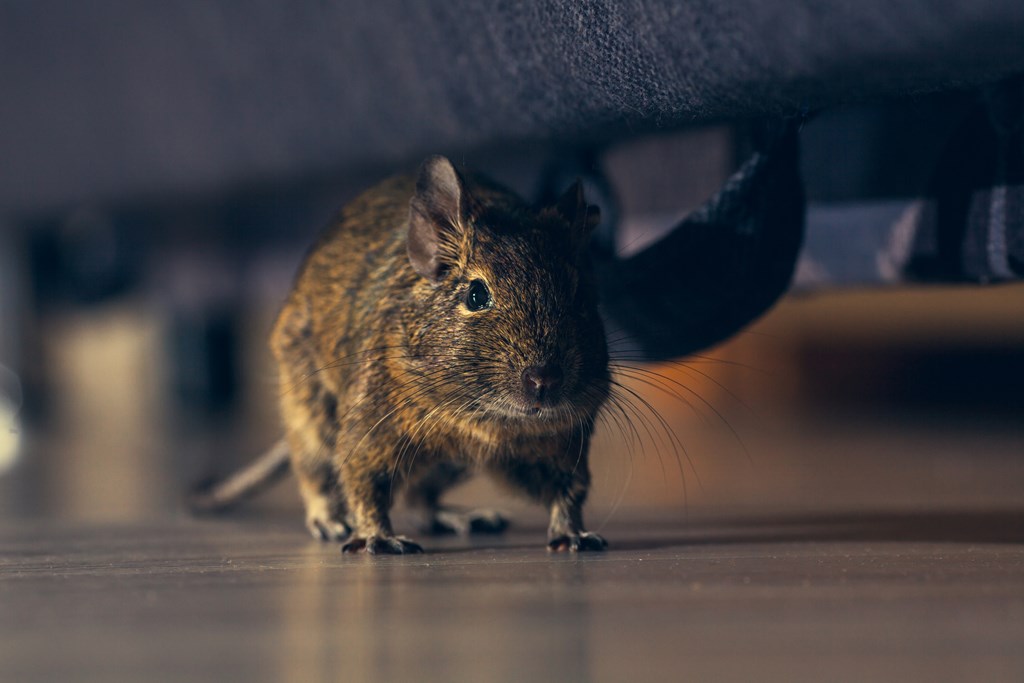
Natural Remedies to Deter Mice
If you are looking for a safer and more organic way to protect your RV, there are some natural mouse-repellent remedies available. Cayenne pepper, vinegar, essential oils, dried bay leaves, coffee grounds, hot sauce and some types of soap emit strong smells that smaller rodents despise. The key is to sprinkle a few drops or pieces of each substance in the areas you think a mouse or rodent is most likely to enter.
Peppermint oil is likely one of the most common natural mouse repellents for campers to use. Unlike humans, who may think of the peppermint smell as pleasant, rodents can’t stand it. You can soak cotton balls in peppermint oil and scatter them around the RV or put the liquid in a spray bottle to distribute it throughout your space.
Professional Pest Control Options
Carrying out your own pest control solutions can be a lot to manage. Instead, you always have the option of calling in the professionals to help. Many professional pest control organizations specialize in RVs and campers and provide on-site, environmentally friendly services you can trust. They will have the expertise and resources necessary to fortify your space and give you the peace of mind you deserve.
Find Insurance for RV Rodent Damage
Of course, with any professional service, you will have to pay a bit more than you would if you were to do it yourself. If you are worried about dealing with expenses created by rodent infestations, consider investing in insurance. The right insurer will offer you peace of mind against rodent damage, accidents and so much more. Kampgrounds of America recommends using Progressive for top-of-the-line coverage you can rely on.
Progressive offers comprehensive RV insurance that covers mice damage to your RV in some situations. Whether your RV is a Class A, B or C, you will have the support you need to enjoy all sorts of adventures. Explore their plans uniquely suited to RV travel and be protected if the worst occurs.
Why Trust KOA for RV Information?
KOA has been an authority in the camping world for more than 60 years. Since 1962, KOA has been providing quality, comfortable campgrounds across North America, offering a home base for campers as they make unforgettable memories. Ready to explore the continent? Whether you want to experience the Badlands of South Dakota, the big sky country of Montana or the sandy shores of Galveston, Texas, there is a KOA near where you want to go.
You can also count on KOA to bring you relevant information on what you need to make your camping adventure epic. From what to pack in your RV and how to prepare your RV for winter storage to delicious camping recipes you will definitely want to try, the KOA blog gives you a wealth of trusted tips and tricks for your RV adventures.
Book Your Stay With KOA
RVs hold the key to your freedom, empowering you to hit the open road on an adventure you will never forget — but you want to make sure you do not have any unwanted passengers riding shotgun. Preventing mice, rats, squirrels and other smaller rodents from entering your space is possible by following some easy and convenient steps.
Once you take the necessary measures to prevent mouse infestations in your RV, it is time to find the perfect place to park your vehicle for a few days or weeks. KOA has more than 500 campgrounds across the U.S. and Canada, so you can set up camp and enjoy the amenities, activities and scenery of the various locations. KOA understands what it takes to help campers enjoy their RV camping experience. Check out RV Site options among the different campgrounds to get started on your vacation today!
About the Author: Kampgrounds of America
Kampgrounds of America is the largest system of open-to-the-public campgrounds in the world, with over 500 locations across the United States and Canada. Founded in Billings, MT in 1962, KOA’s family of campground brands – KOA Journey, KOA Holiday and KOA Resort – today serve more than a million camping families each year. KOA is dedicated to “connecting people to the outdoors and each other” by providing people with a variety of camping experiences and the information they need to make the most of their camping trip. Read more of their camping and travel resources by visiting KOA.com/blog.






